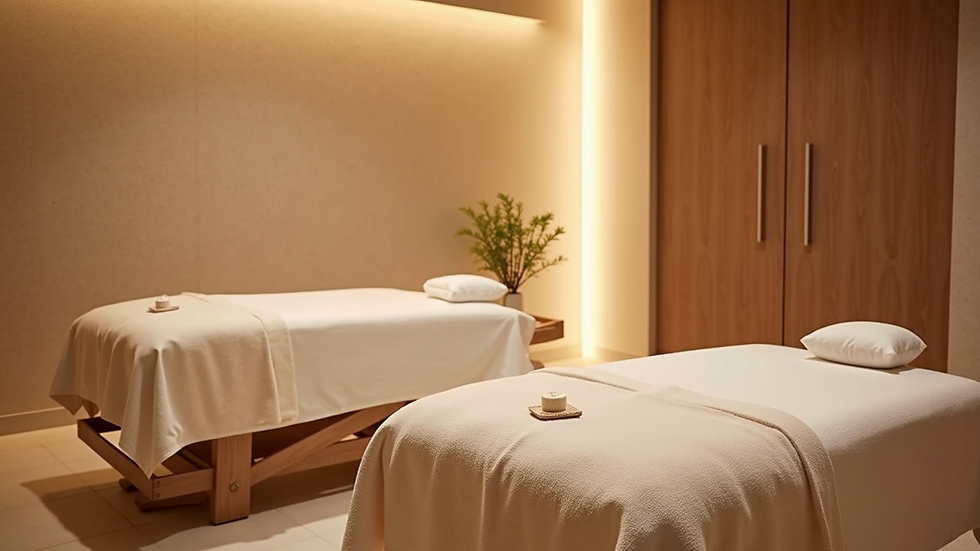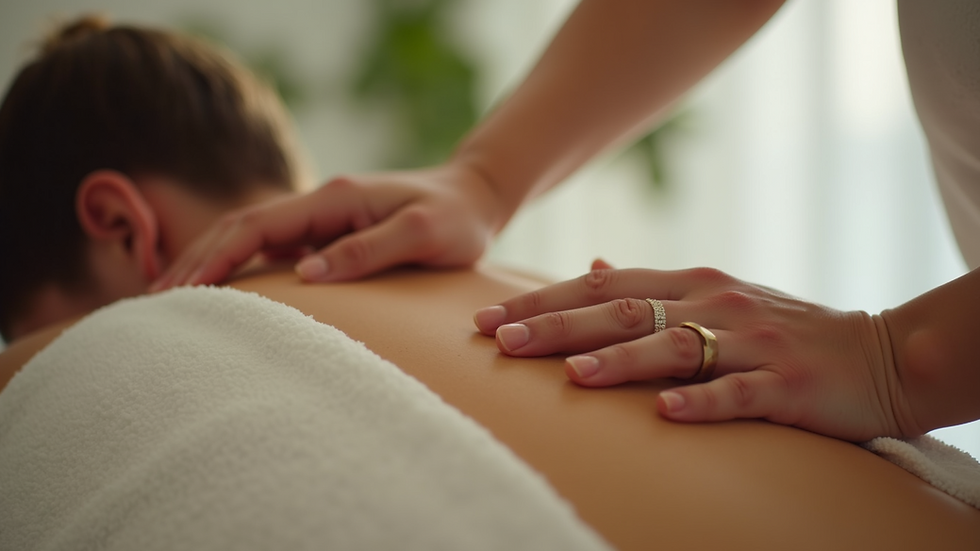The Connection Between Relaxation and Overall Health
- Shaba Thaimassage

- Jul 28, 2025
- 4 min read
Relaxation is often seen as a luxury or an occasional treat, but its impact on overall health is profound and far-reaching. Taking time to relax regularly can improve mental clarity, reduce stress, and enhance physical well-being. This article explores the deep connection between relaxation benefits and health, offering practical advice on how to incorporate relaxation into daily life for lasting positive effects.
Understanding Relaxation Benefits for Mind and Body
Relaxation is more than just feeling calm; it triggers a series of physiological changes that promote health. When the body relaxes, the nervous system shifts from the fight-or-flight mode to the rest-and-digest state. This shift lowers heart rate, reduces blood pressure, and decreases the production of stress hormones like cortisol.
Some key relaxation benefits include:
Improved mental health: Relaxation reduces anxiety and depression symptoms by calming the mind.
Better sleep quality: Relaxed muscles and a calm mind help you fall asleep faster and enjoy deeper sleep.
Enhanced immune function: Lower stress levels boost the immune system, making it easier to fight off illnesses.
Pain relief: Relaxation techniques can reduce muscle tension and chronic pain.
Incorporating relaxation into your routine can be as simple as practicing deep breathing, meditation, or gentle yoga. These activities help reset your nervous system and improve your overall health.

How Relaxation Benefits Impact Physical Health
Relaxation has a direct impact on physical health by influencing various bodily systems. Chronic stress can lead to inflammation, heart disease, and digestive problems. By regularly engaging in relaxation practices, you can counteract these effects.
For example, relaxation lowers cortisol levels, which helps reduce inflammation and supports heart health. It also improves digestion by stimulating the parasympathetic nervous system, which controls the digestive process. This can alleviate symptoms of irritable bowel syndrome and other digestive disorders.
Relaxation also promotes muscle recovery and flexibility. Techniques like progressive muscle relaxation and massage therapy help release tension and improve circulation. This is why many athletes and fitness enthusiasts include relaxation in their recovery routines.
One effective way to experience these benefits is through professional massage therapy. For instance, shaba thai offers traditional Thai massage, which combines stretching and deep tissue work to enhance relaxation and physical health.

What is the typical cost of Thai massage?
Thai massage is a popular relaxation technique known for its unique combination of stretching, acupressure, and deep tissue massage. The cost of a Thai massage can vary depending on location, duration, and the expertise of the therapist.
In many urban areas, a 60-minute Thai massage session typically ranges from $50 to $100. Longer sessions, such as 90 or 120 minutes, may cost between $80 and $150. Some high-end spas or specialized therapists may charge more due to their experience and the quality of service.
When considering the cost, it is important to weigh the benefits of relaxation and health improvements. Regular Thai massage sessions can reduce stress, improve flexibility, and alleviate chronic pain, making it a worthwhile investment in your well-being.
To find affordable and quality Thai massage services, look for reputable centers with positive reviews. Many places offer package deals or discounts for multiple sessions, which can make regular relaxation more accessible.

Practical Ways to Incorporate Relaxation into Your Daily Life
Relaxation does not have to be time-consuming or complicated. Small, consistent actions can make a big difference in your health. Here are some practical ways to add relaxation to your daily routine:
Deep breathing exercises: Spend 5 minutes focusing on slow, deep breaths to calm your nervous system.
Mindfulness meditation: Practice being present in the moment to reduce anxiety and improve focus.
Gentle stretching or yoga: Stretching helps release muscle tension and promotes flexibility.
Listening to calming music: Soft music can lower heart rate and create a peaceful environment.
Taking short breaks: Step away from work or stressful situations to reset your mind.
Enjoying nature: Spending time outdoors can reduce stress and improve mood.
By making these activities a habit, you can experience ongoing relaxation benefits that support your overall health.
The Role of Professional Relaxation Therapies in Health Maintenance
While self-care techniques are valuable, professional relaxation therapies offer additional benefits. Therapists are trained to target specific areas of tension and use techniques that may be difficult to perform on your own.
Therapies such as massage, acupuncture, and aromatherapy can enhance relaxation and address health issues like chronic pain, insomnia, and anxiety. For example, Thai massage combines stretching and pressure to improve circulation and flexibility, which can be especially helpful for those with muscle stiffness or joint pain.
Choosing a reputable provider ensures you receive safe and effective treatment. Many wellness centers offer personalized plans that combine different therapies to maximize relaxation benefits.
Incorporating professional therapies into your health routine can complement your self-care practices and provide deeper relaxation and healing.
Relaxation is a powerful tool for improving both mental and physical health. By understanding its benefits and incorporating simple techniques into your daily life, you can reduce stress, enhance well-being, and enjoy a healthier lifestyle. Whether through self-care or professional therapies like those offered by shaba thai, prioritizing relaxation is an investment in your long-term health and happiness.




Comments